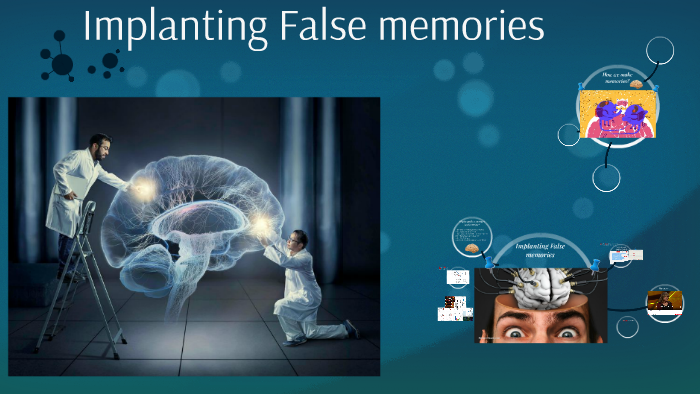

In: Encyclopedia of Behavioral Neuroscience, 2nd Edition. The effects of sleep restriction and sleep deprivation in producing false memories. Policy Insights from the Behavioral and Brain Sciences. Dealing with false memories in children and adults: Recommendations for the legal arena. Otgaar H, Howe ML, Muris P, Merckelbach H. Constructing rich false memories of committing crime.

Believing is seeing: Cognitive-behavioral consequences of belief and recollection. Current Directions in Psychological Science. Happy believers and sad skeptics? Affective influences on gullibility. Psychology of Consciousness: Theory, Research, and Practice. False memory tasks do not reliably predict other false memories. A new intuitionism: Meaning, memory, and development in fuzzy-trace theory. As for the false memories of older people, what looks like a memory deficit might be new memories and information interfering with older memories. Most people have some memory distortions, but trauma, pressure from others, stress, and mental health issues can increase their likelihood. Memories can also be repressed and appear later, and such memories can be false or true. They can range from harmless childhood memories, like memories of a day at the park, to traumatic events or even false confessions of crime. Summaryįalse memories are memories of events that don't match reality. A recent review of trauma memory research also supports the idea that victims who recover memories could be telling the truth and that psychologists and law enforcement should support them. The American Psychological Association advises against using the title and suggests the title “recovered memory” since there is evidence that recovered memories of abuse and trauma can be true. False memory syndrome (FMS) is a controversial label for repressed memories that are brought to the surface with the help of a therapist.


 0 kommentar(er)
0 kommentar(er)
